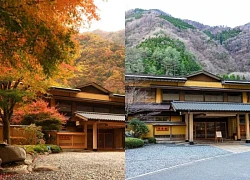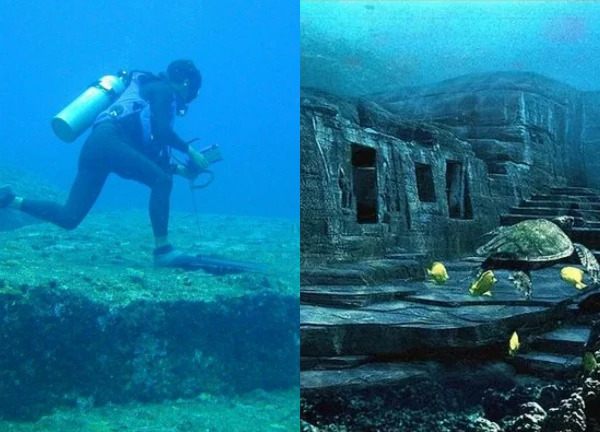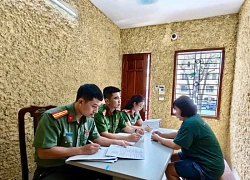Heartbroken 10X guy died in Japan while saving someone, family can't bring him back

0 | 0 Discuss | Share
The relentless tremors are tormenting Japan's Tokara Islands, with more than 1,300 earthquakes in just two weeks. Rumors of an imminent "great earthquake" spread, sowing extreme fear.
Recently, rumors of an imminent "great earthquake" in Japan have spread rapidly, causing confusion in public opinion. However, leading experts have reassured and clarified this unfounded information.
Ayataka Ebita, head of the Japan Meteorological Agency's (JMA) Earthquake and Tsunami Monitoring Division, bluntly denied the connection between the rumors and the ability to accurately predict earthquakes. He affirmed: "With current scientific knowledge, it is impossible for humans to accurately predict the date, time, scale and location of an earthquake. Even if the earthquake occurred at the time it was rumored, it was just a coincidence, with no scientific basis."
This is perfectly reasonable considering the frequency of earthquakes in Japan. Every year, the country records about 2,000 earthquakes with a magnitude of 1 or more, and can even reach 6,500 during peak years. So constant predictions will definitely hit the ground running, but that's not based on science at all.
JMA experts are always committed to only publishing verified information and clearly acknowledging things that are beyond the predictability of science. This emphasizes the importance of people making judgments based on scientific knowledge, avoiding being swept away by false information.
Although rumors of a "great earthquake" are unfounded, seismic activity in Japan has recently been unusual, especially in the Tokara Islands, Kagoshima Prefecture. From 8 a.m. on June 21 to 7 a.m. on July 5, the JMA recorded a total of 1,303 earthquakes with a magnitude of 1 or more in this area. Notably, among them were a strong magnitude 6 earthquake, a magnitude 5 earthquake and three magnitude 5 earthquakes.
At around 6:30 a.m. on July 5, a magnitude 5.4 earthquake struck off the coast of the Tokara Islands, with a magnitude 5 earthquake recorded in the village of Toshima, Kagoshima Prefecture. This level of shaking is enough to cause damage in residential areas. Fortunately, there is no tsunami risk, but Japanese officials are still urgently warning people to continue to be vigilant for other earthquakes that could reach a maximum intensity of 6 in the near future.
On the island of Akusekijima, which was hardest hit by the earthquake, people experienced terrible hours. Yoshiaki Tofusa, principal of Akusekijima Gakuen Compulsory Education School, recalled: "There was a series of earthquakes from 3 a.m., so I went to the school to check the situation. When I just got home, there was another magnitude 5 earthquake, so I immediately went back to school. Furniture such as detergent from the upper floors also fell. This feeling is completely different from a magnitude 4 earthquake."
Keiko Nishi, who runs a guest house on the island, was also unable to sleep after the magnitude 4 earthquake at dawn: "I felt clearly that it was a big earthquake. The globe I left on the shelf fell and shattered. Everyone's mood is tired and exhausted. Some elderly people are considering leaving the island tomorrow." These authentic accounts have exposed the anxiety and insecurity of local people in the face of the complicated seismic situation.
Shortly after the magnitude 5 earthquake at 6:29 a.m., the Toshima government issued an evacuation order for the entire Akusekijima Island area. Residents are instructed to move to the campus of Akusekijima Academy, which is located on higher ground and is safer. Although the evacuation order was lifted at 7:30 a.m. after confirming that no one was injured and the situation was stable, the risk remained.
Ebita Ayaki, head of the JMA's Earthquake and Tsunami Monitoring Board, emphasized: "In areas with strong shaking, the risk of house collapses and landslides is increasing. People need to be very careful about seismic activity in the coming days, and at the same time pay attention to the weather situation, especially heavy rain that can increase the risk of landslides." A high level of vigilance is still enveloping the locals, hoping that the shaking will soon end and cause no further damage. While unfounded rumors can be confusing, relying on accurate information from specialized agencies and being proactive in preparing will be key for the Japanese people to overcome this challenging period.
The world's oldest hotel: 1,317 years old, still fully booked every tourist season  Ponni19:40:21 28/06/2025Nestled among the majestic mountains of Yamanashi Prefecture, Japan, Nishiyama Onsen Keiunkan Hotel is not only a relaxing stopover, but also a unique historical witness in the world.
Ponni19:40:21 28/06/2025Nestled among the majestic mountains of Yamanashi Prefecture, Japan, Nishiyama Onsen Keiunkan Hotel is not only a relaxing stopover, but also a unique historical witness in the world.

0 | 0 Discuss | Share

1 | 0 Discuss | Share

3 | 0 Discuss | Share

3 | 0 Discuss | Share

1 | 0 Discuss | Share

4 | 0 Discuss | Share

5 | 0 Discuss | Share

2 | 0 Discuss | Share

2 | 0 Discuss | Share

5 | 1 Discuss | Share

1 | 0 Discuss | Share

2 | 0 Discuss | Share





1 | 0 Discuss | Report